| Availability: | |
|---|---|
| Quantity: | |
| Place of Origin | China | Certification | ISO 9001: 2015 ROHS REACH |
| Brand Name | Honesun | Tolerance | 0.05mm |
| Model Number | Others, customized | Working Temperature | -40℃~89℃ |
| Type | Permanent | Delivery time | 3-15days |
| Composite | bespoke neodymium magnets | Package | customized |
| Shape | magnetic disk bespoke neodymium magnets | Sample | Avaliable |
| Application | Industrial Magnet | Keyword | neodymium magnet |
| Processing Service | Cutting, Punching | Quality Control | ≥98% |
| Grade | N35-N52 | Packaging Details | 1:Standard air and vessel package 2:according to customers's request |
| Coating | Epoxy.Black Epoxy. Nickel.Silver.etc | Lead time (days) | To be negotiated |
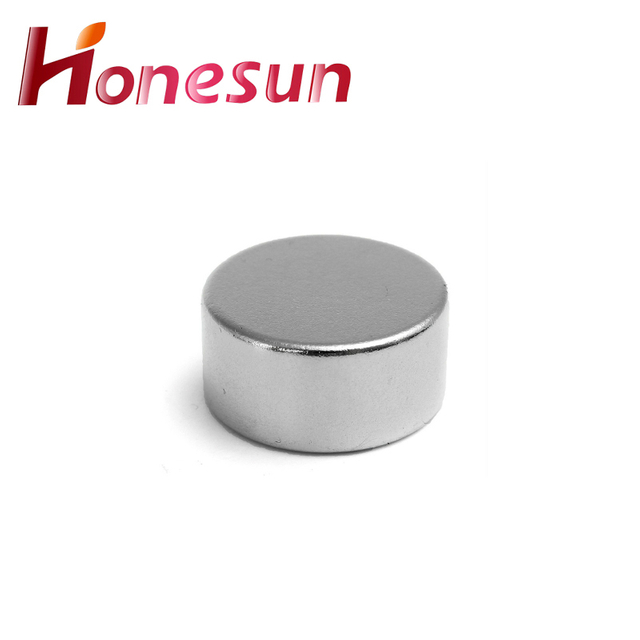
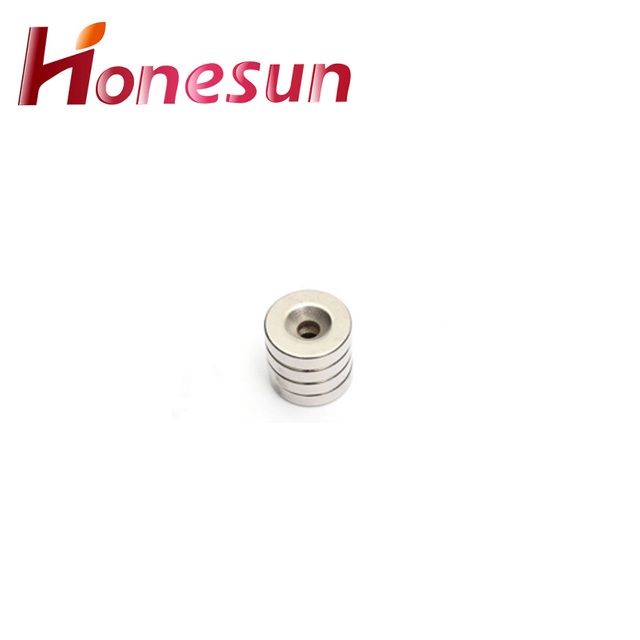
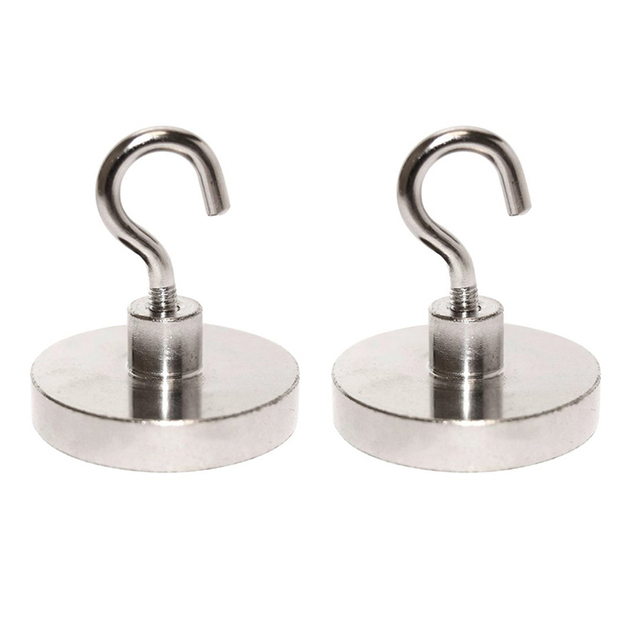
1.What is the maximum operating temperature of bespoke neodymium magnets?
We continuously upgrade our skills and knowledge to adapt to changing bespoke neodymium magnets market needs. The maximum operating temperature of Neodymium Magnets is 80°C (176°F).
2.How do bespoke neodymium magnets contribute to renewable energy sources?
Neodymium magnets are used in many renewable energy sources, such as wind turbines and solar panels. They are used to generate electricity from the rotation of the turbine blades or the movement of the sun’s rays. Neodymium magnets are also used in electric motors, which are used to power electric vehicles. Additionally, they are used in generators to convert mechanical energy into electrical energy.
3.What are the safety precautions when handling bespoke neodymium magnets?
We are a professional bespoke neodymium magnets company dedicated to providing high quality products and services. 1. Keep magnets away from children and pets. 2. Wear protective gloves and eye protection when handling magnets. 3. Do not allow magnets to snap together or impact each other. 4. Do not allow magnets to come into contact with electronic devices, such as computers, cell phones, and credit cards. 5. Do not allow magnets to come into contact with pacemakers or other medical devices. 6. Do not allow magnets to come into contact with magnetic media, such as floppy disks, credit cards, and videotapes. 7. Do not allow magnets to come into contact with each other, as they can become permanently magnetized. 8. Do not allow magnets to come into contact with flammable materials, such as gasoline, paint, and solvents. 9. Do not allow magnets to come into contact with liquids, as they can corrode. 10. Store magnets in a dry, cool place away from direct sunlight.
4.What are the limitations of using bespoke neodymium magnets?
As one of the top bespoke neodymium magnets manufacturers in China, we take this very seriously. 1. Neodymium magnets are brittle and can easily break or chip if dropped or handled roughly. 2. Neodymium magnets can corrode if exposed to moisture or other corrosive elements. 3. Neodymium magnets can be difficult to machine and require special tools and techniques. 4. Neodymium magnets can be difficult to demagnetize and require special tools and techniques. 5. Neodymium magnets can be expensive compared to other types of magnets.
5.Can bespoke neodymium magnets be custom-made for specific applications?
Yes, neodymium magnets can be custom-made for specific applications. Depending on the application, the size, shape, and strength of the magnet can be tailored to meet the specific requirements.
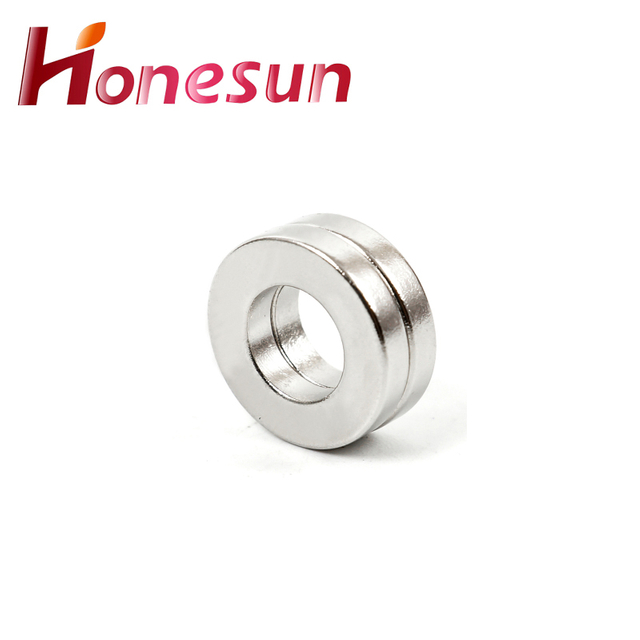
6.Are bespoke neodymium magnets affected by extreme temperatures?
Yes, neodymium magnets can be affected by extreme temperatures. They can become brittle and crack if exposed to temperatures above 175°C (347°F). They can also lose their magnetism if exposed to temperatures below -45°C (-49°F).
7.Are bespoke neodymium magnets used in electric vehicles?
Yes, neodymium magnets are used in electric vehicles. They are used in the electric motors that power the vehicle, as well as in the batteries that store the energy. Neodymium magnets are also used in the regenerative braking systems of electric vehicles, which help to capture and store energy that would otherwise be lost as heat.
8.Can bespoke neodymium magnets be used for magnetic therapy?
No, neodymium magnets are not recommended for use in magnetic therapy. Neodymium magnets are very powerful and can cause tissue damage if used incorrectly. It is best to consult a qualified healthcare professional before using any type of magnetic therapy.
9.How do bespoke neodymium magnets compare to traditional ceramic magnets?
Neodymium magnets are much stronger than traditional ceramic magnets. They are made from an alloy of neodymium, iron, and boron and are the strongest type of permanent magnet available. Neodymium magnets are much smaller than ceramic magnets and can generate significantly higher magnetic fields. They are also more expensive than ceramic magnets.
10.What is the manufacturing process for bespoke neodymium magnets?
Our bespoke neodymium magnets products undergo strict quality control to ensure customer satisfaction. 1. Raw Material Preparation: Neodymium magnets are made from an alloy of neodymium, iron, and boron. The raw materials are melted together in a vacuum induction furnace to create a homogenous alloy. 2. Compacting: The molten alloy is then poured into a die and compacted under high pressure to form a solid block. 3. Sintering: The compacted block is then heated in a vacuum furnace to sinter the material, which increases its strength and magnetic properties. 4. Machining: The sintered block is then machined into the desired shape and size. 5. Magnetizing: The machined magnet is then magnetized by exposing it to a strong magnetic field. This process aligns the magnetic domains within the material, creating a permanent magnet.
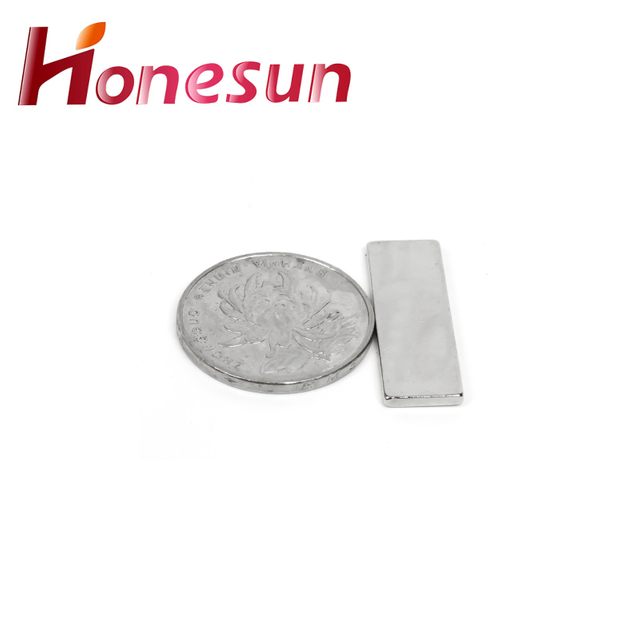
11.Are there any restrictions on the production or use of bespoke neodymium magnets?
Yes, there are restrictions on the production and use of neodymium magnets. Neodymium magnets are subject to the European Union's Restriction of Hazardous Substances (RoHS) directive, which restricts the use of certain hazardous materials in electrical and electronic equipment. Additionally, neodymium magnets are subject to the International Maritime Organization's (IMO) International Maritime Dangerous Goods (IMDG) Code, which regulates the transport of hazardous materials by sea. Finally, neodymium magnets are subject to the United Nations' International Atomic Energy Agency (IAEA) regulations, which regulate the use of radioactive materials.
12.How have bespoke neodymium magnets revolutionized the manufacturing industry?
Neodymium magnets have revolutionized the manufacturing industry by providing a powerful, lightweight, and cost-effective alternative to traditional ferrite magnets. Neodymium magnets are used in a variety of applications, from motors and generators to sensors and medical equipment. They are also used in the production of consumer electronics, automotive components, and industrial machinery. Neodymium magnets are more powerful than ferrite magnets, allowing for smaller, lighter, and more efficient designs. They are also more cost-effective, making them a popular choice for manufacturers.
13.What types of coatings are used on bespoke neodymium magnets?
Our mission is to provide customers with the best solutions for bespoke neodymium magnets. Neodymium magnets are typically coated with a protective layer of nickel, copper, or zinc. Nickel plating provides the best corrosion resistance, while copper plating provides the best electrical conductivity. Zinc plating is the most economical option and provides good corrosion resistance.
| Place of Origin | China | Certification | ISO 9001: 2015 ROHS REACH |
| Brand Name | Honesun | Tolerance | 0.05mm |
| Model Number | Others, customized | Working Temperature | -40℃~89℃ |
| Type | Permanent | Delivery time | 3-15days |
| Composite | bespoke neodymium magnets | Package | customized |
| Shape | magnetic disk bespoke neodymium magnets | Sample | Avaliable |
| Application | Industrial Magnet | Keyword | neodymium magnet |
| Processing Service | Cutting, Punching | Quality Control | ≥98% |
| Grade | N35-N52 | Packaging Details | 1:Standard air and vessel package 2:according to customers's request |
| Coating | Epoxy.Black Epoxy. Nickel.Silver.etc | Lead time (days) | To be negotiated |



1.What is the maximum operating temperature of bespoke neodymium magnets?
We continuously upgrade our skills and knowledge to adapt to changing bespoke neodymium magnets market needs. The maximum operating temperature of Neodymium Magnets is 80°C (176°F).
2.How do bespoke neodymium magnets contribute to renewable energy sources?
Neodymium magnets are used in many renewable energy sources, such as wind turbines and solar panels. They are used to generate electricity from the rotation of the turbine blades or the movement of the sun’s rays. Neodymium magnets are also used in electric motors, which are used to power electric vehicles. Additionally, they are used in generators to convert mechanical energy into electrical energy.
3.What are the safety precautions when handling bespoke neodymium magnets?
We are a professional bespoke neodymium magnets company dedicated to providing high quality products and services. 1. Keep magnets away from children and pets. 2. Wear protective gloves and eye protection when handling magnets. 3. Do not allow magnets to snap together or impact each other. 4. Do not allow magnets to come into contact with electronic devices, such as computers, cell phones, and credit cards. 5. Do not allow magnets to come into contact with pacemakers or other medical devices. 6. Do not allow magnets to come into contact with magnetic media, such as floppy disks, credit cards, and videotapes. 7. Do not allow magnets to come into contact with each other, as they can become permanently magnetized. 8. Do not allow magnets to come into contact with flammable materials, such as gasoline, paint, and solvents. 9. Do not allow magnets to come into contact with liquids, as they can corrode. 10. Store magnets in a dry, cool place away from direct sunlight.
4.What are the limitations of using bespoke neodymium magnets?
As one of the top bespoke neodymium magnets manufacturers in China, we take this very seriously. 1. Neodymium magnets are brittle and can easily break or chip if dropped or handled roughly. 2. Neodymium magnets can corrode if exposed to moisture or other corrosive elements. 3. Neodymium magnets can be difficult to machine and require special tools and techniques. 4. Neodymium magnets can be difficult to demagnetize and require special tools and techniques. 5. Neodymium magnets can be expensive compared to other types of magnets.
5.Can bespoke neodymium magnets be custom-made for specific applications?
Yes, neodymium magnets can be custom-made for specific applications. Depending on the application, the size, shape, and strength of the magnet can be tailored to meet the specific requirements.

6.Are bespoke neodymium magnets affected by extreme temperatures?
Yes, neodymium magnets can be affected by extreme temperatures. They can become brittle and crack if exposed to temperatures above 175°C (347°F). They can also lose their magnetism if exposed to temperatures below -45°C (-49°F).
7.Are bespoke neodymium magnets used in electric vehicles?
Yes, neodymium magnets are used in electric vehicles. They are used in the electric motors that power the vehicle, as well as in the batteries that store the energy. Neodymium magnets are also used in the regenerative braking systems of electric vehicles, which help to capture and store energy that would otherwise be lost as heat.
8.Can bespoke neodymium magnets be used for magnetic therapy?
No, neodymium magnets are not recommended for use in magnetic therapy. Neodymium magnets are very powerful and can cause tissue damage if used incorrectly. It is best to consult a qualified healthcare professional before using any type of magnetic therapy.
9.How do bespoke neodymium magnets compare to traditional ceramic magnets?
Neodymium magnets are much stronger than traditional ceramic magnets. They are made from an alloy of neodymium, iron, and boron and are the strongest type of permanent magnet available. Neodymium magnets are much smaller than ceramic magnets and can generate significantly higher magnetic fields. They are also more expensive than ceramic magnets.
10.What is the manufacturing process for bespoke neodymium magnets?
Our bespoke neodymium magnets products undergo strict quality control to ensure customer satisfaction. 1. Raw Material Preparation: Neodymium magnets are made from an alloy of neodymium, iron, and boron. The raw materials are melted together in a vacuum induction furnace to create a homogenous alloy. 2. Compacting: The molten alloy is then poured into a die and compacted under high pressure to form a solid block. 3. Sintering: The compacted block is then heated in a vacuum furnace to sinter the material, which increases its strength and magnetic properties. 4. Machining: The sintered block is then machined into the desired shape and size. 5. Magnetizing: The machined magnet is then magnetized by exposing it to a strong magnetic field. This process aligns the magnetic domains within the material, creating a permanent magnet.

11.Are there any restrictions on the production or use of bespoke neodymium magnets?
Yes, there are restrictions on the production and use of neodymium magnets. Neodymium magnets are subject to the European Union's Restriction of Hazardous Substances (RoHS) directive, which restricts the use of certain hazardous materials in electrical and electronic equipment. Additionally, neodymium magnets are subject to the International Maritime Organization's (IMO) International Maritime Dangerous Goods (IMDG) Code, which regulates the transport of hazardous materials by sea. Finally, neodymium magnets are subject to the United Nations' International Atomic Energy Agency (IAEA) regulations, which regulate the use of radioactive materials.
12.How have bespoke neodymium magnets revolutionized the manufacturing industry?
Neodymium magnets have revolutionized the manufacturing industry by providing a powerful, lightweight, and cost-effective alternative to traditional ferrite magnets. Neodymium magnets are used in a variety of applications, from motors and generators to sensors and medical equipment. They are also used in the production of consumer electronics, automotive components, and industrial machinery. Neodymium magnets are more powerful than ferrite magnets, allowing for smaller, lighter, and more efficient designs. They are also more cost-effective, making them a popular choice for manufacturers.
13.What types of coatings are used on bespoke neodymium magnets?
Our mission is to provide customers with the best solutions for bespoke neodymium magnets. Neodymium magnets are typically coated with a protective layer of nickel, copper, or zinc. Nickel plating provides the best corrosion resistance, while copper plating provides the best electrical conductivity. Zinc plating is the most economical option and provides good corrosion resistance.
Honesun Industrial Co., Ltd. focuses on designing, researching, developing, manufacturing and selling Magnets and Magnetic Assemblies. With more than 15 years' rich experience and considerate services.we have been recognized as a reliable.



